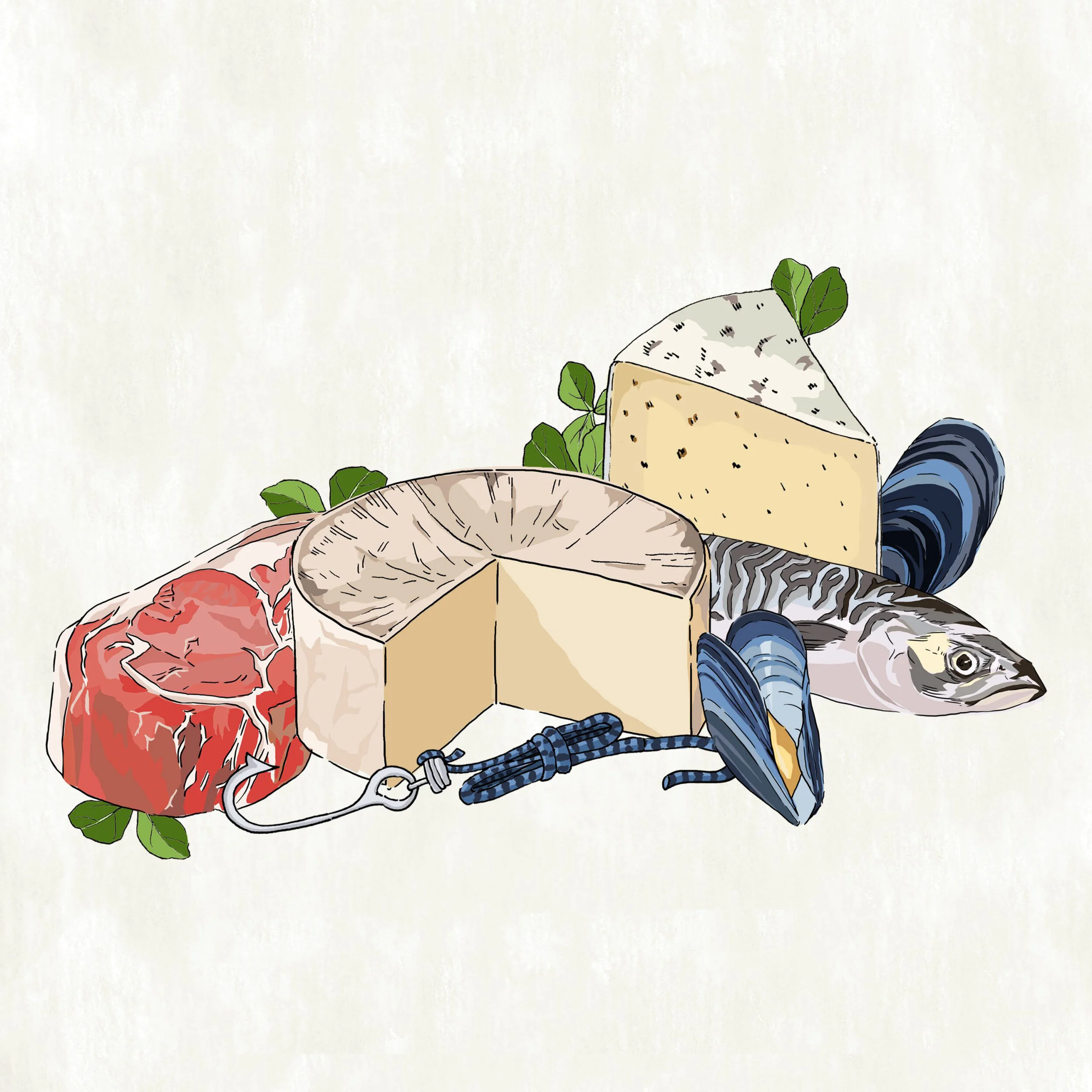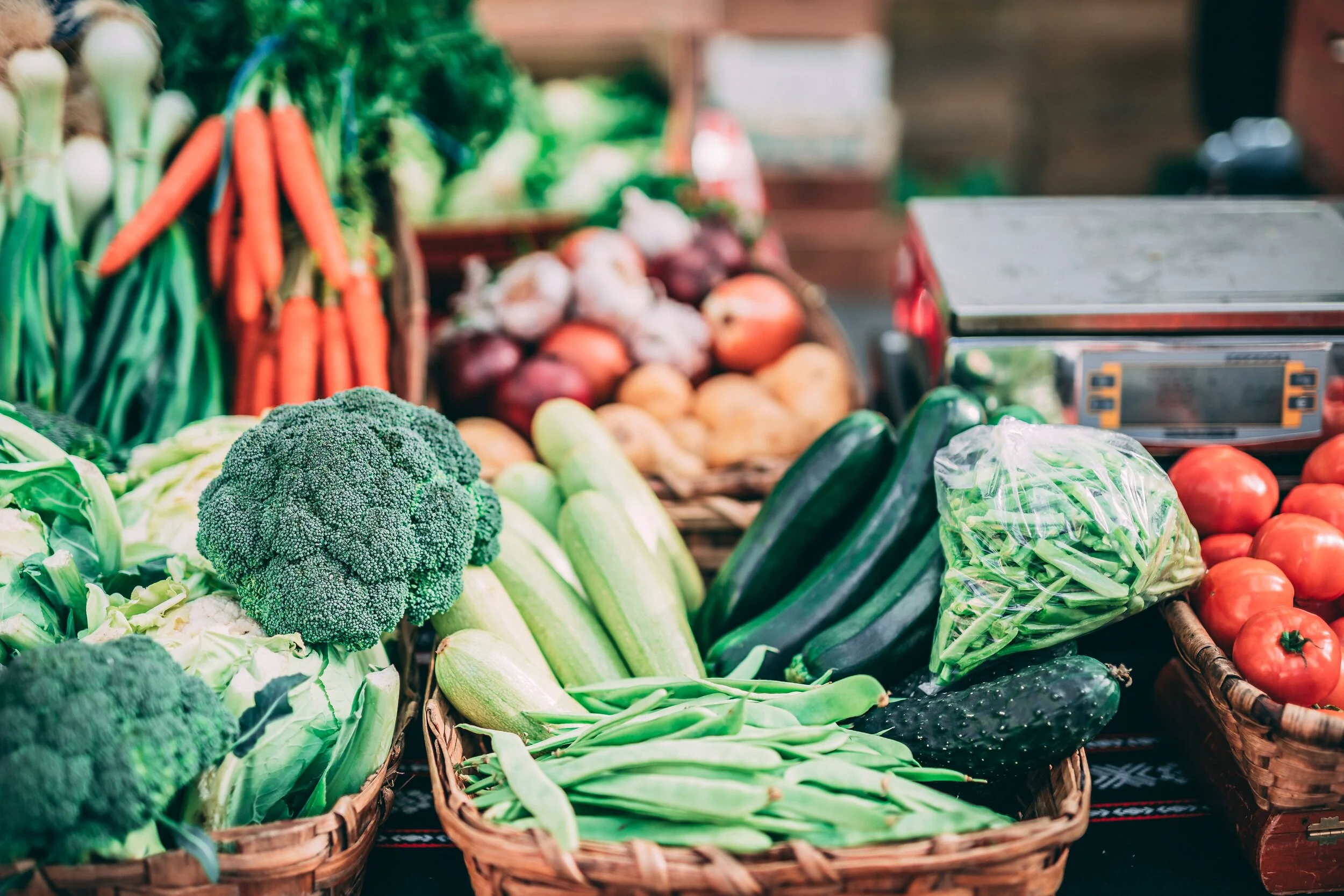The world has changed since Reuben Chesters and Robert Fraser began working together. “It was a while ago”, says Robert, “so the situation has changed many times, as it always does... That’s life!”
About 2 years ago, Locavore: an organic vegetable box scheme and shop in Glasgow), had run out of space for their veg box scheme and were in need of a new base for the business to grow with demand. Having previously received bank loans for social investment, with high-interest rates (up to 10%) the fees risked outweighing the return for a small business. Without any assets, Loans for Enlightened Agriculture Programme (LEAP)’s unsecured, low-cost lending gave Locavore freedom to grow organically, with more support and less pressure.
LEAP’s blended financial package for agroecological food businesses, which includes a loan, grant and mentoring, is designed to help the sector “move away from grant-dependency”. This leg-up, rather than hand-out, comes from an organisation within the sector - the Real Farming Trust, who bring experience, understanding, and flexibility, to a commercial funding relationship that aims to elevate ‘enlightened’ enterprises to financial sustainability. When the building that Locavore was planning to purchase with funding from LEAP fell through, a new opportunity arose to take over the disused, council-owned plant nursery, Bellahouston. While this was a better site it would be a longer process, so the funding was instead funnelled into refurbishing Locavore’s existing shop and finding premises for a second one.
“It’s been brilliant”, says Reuben, “quite often, with organisations like us, opportunities come up and they end up being a dead end, so it’s great having the sort of partnership which is there to have the chat about this project and that project.”
Image Locavore
Reuben Chesters, Locavore
The shops will create space for more veg and more staff - Reuben was holding interviews for an assistant manager straight after our call - with around 10 new roles coming up. Growing retail will also drive activity on the land; already this year, a conventional farm has agreed to convert 15 acres for organic food that will supply Locavore.
The introduction of lockdown midway through the LEAP-Locavore project changed everything again, when demand for their veg boxes spiked by 27% [1], as 3 million people subscribed to a box scheme or bought from a local farm for the first time [2]. About to open the new shop, Reuben was forced to reconsider the best route forward.
Image Locavore
Integral to LEAP is its adaptation to the inevitability of unexpected events, and a recalibration of priorities in the wake of change, as is often necessary with farming. “There are so many uncertainties”, says Robert, “you can’t plan next week, let alone next year!”.
LEAP tries to be, he describes, “as radical a solution to funding as we could come up with in the current circumstances… We haven’t come at it from a financial angle, our primary motivation is social impact and supporting the sector to grow and develop. Financial return is secondary,” although important for the fund itself to be commercially viable, so it too is sustainable.
A grant (18% of the loan amount) is also given to protect and strengthen the social and environmental care at the heart of their business models. Despite being valuable for existing and potential supporters, Robert laments that this care is rarely valued by commercial funders, and is “always the first thing that gets dropped by a business that’s trying to trade day-to-day, pay the bills, and survive.”
To help organisations understand and evidence their impact on the local community, environment and economy, LEAP collaborates with them on a ‘social impact plan’, which identifies what should be measured and how. “We recognise that collecting this information is an additional workload, so it has to be useful for their own management as an organisation, and every organisation is different”.
Image Locavore
Locavore used the grant for a new team member, a ‘social impact champion’, working to quantify and study its social and economic impacts. Reuben believes that the information will be useful not just to Locavore, but also for other similar businesses trying to “justify the straight-forward economic importance of localising supply chains”, as well as their community benefits.
“One of the problems we’ve had, and what the sector generally struggles with”, he thinks, “is communicating what we do, because it’s quite complicated... There’s lots of different aspects to it; it’s not just ‘zero-waste’ or ‘plastic-free’, it’s a whole different system that contributes in all sorts of ways to our society and economy. So on the one hand, we don’t have a simple message, and on the other, we don’t have any robust statistics either. We know it’s important, but we can’t tell you how important!”.
Locavore will now be able to tell us how important it is to the local community and economy, and, meanwhile, the Real Farming Trust and its network is working on a Social Impact Toolkit, being developed with Coventry University’s Centre for Agroecology, Water and Resilience. The end result hopes to provide other community-based food and farming enterprises the means to more easily measure and communicate their impact.
Robert feels strongly that “without really growing peoples’ understanding of the importance of their food choices, it’s very difficult to have any change in the food system, because there’ll only be small growing projects and the market is always challenging for them”.
He understands that “a lot of organisations in this sector are inherently wary of debt finance, but that’s actually part of the problem we’re trying to solve” - a reliance on grants rather than profit, which would attract capital for reinvestment, and see steady growth. To make the food system more ecologically sustainable and socially equitable, it’s vital that regenerative food businesses become commercially viable and valuable.
“We’re on a journey, we’re all learning”, Robert says; “‘it’s not easy, and grants are absolutely vital in certain circumstances, they have a role to play. But they’re not getting any more common and are very competitive.” Meanwhile, due to Covid and recession, he anticipates that “funding will be even more important, though people may naturally feel more reticent to take it on”.
Whilst LEAP supports enterprises that “are all at different stages in their travels”, Locavore is one of the largest to date, having had their first million-pound quarter to June and set for a multi-million-pound annual turnover. “We’d like 10 of Locavore! It’s about developing the market for agro-ecologically grown food,” so Robert is very keen to hear from more businesses “selling agroecological, organic food, to their communities”.
To be considered as ‘Enlightened Agriculture’ and eligible for LEAP funds, enterprises will be in the business of growing and/or selling agroecologically-grown food. Their business model will be based on, and building towards food sovereignty and economic democracy: owned by the people and operating for the people, such as a co-operative, community interest company or community benefit society. By supporting community-centred enterprises LEAP aims to facilitate longer-term local economic and social benefits, so if this sounds like your business, get in touch with them!
To find out more about Locavore, head to their website, follow them on Twitter, Instagram or Facebook.
[1] https://orfc.org.uk/farms-to-feed-us/
[2] https://twitter.com/GlasgowLocavore/status/1302950610069852161/photo/1

































